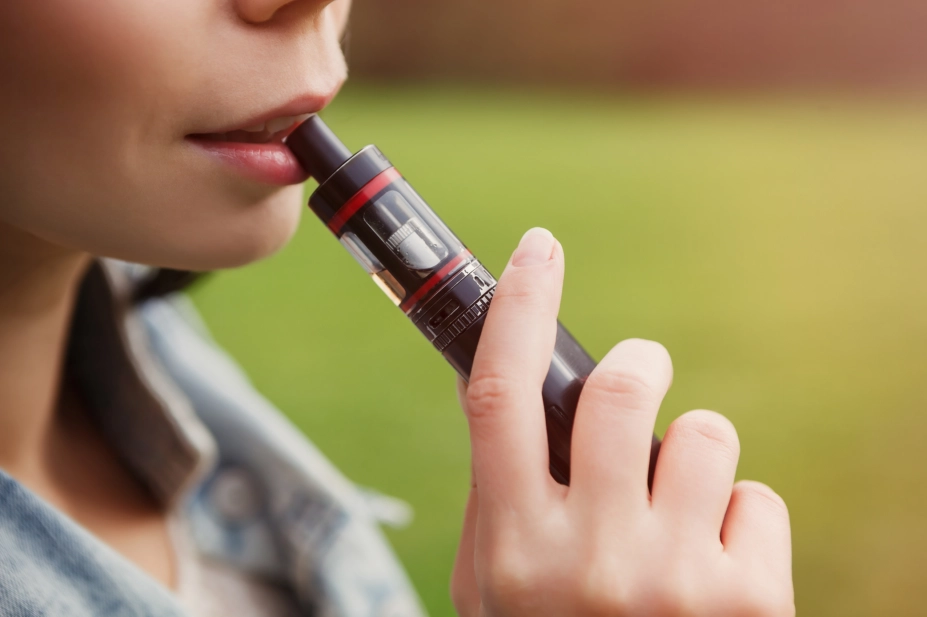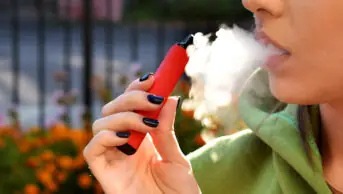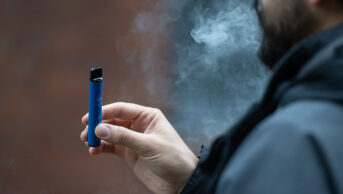
Shutterstock.com
A ban on flavoured e-cigarette liquids could deter smokers from switching to vaping, a report from Public Health England (PHE) has concluded.
In its annual review of evidence on vaping, PHE said any ban on flavoured liquids could push current vapers towards illicit products, and called for more research into e-cigarette flavour preferences among young people.
The report, ‘Vaping in England: an evidence update including mental health and pregnancy’, published on 4 March 2020, also found that more than half of smokers now believe that nicotine vaping products are equally as, or more harmful than, smoking.
In 2019 only 34% of smokers thought that vaping was less harmful than smoking: a notable decline from 2014, when 45% held this view, the report noted. Smokers’ perception of the harm from vaping is “increasingly out of line with the evidence”, it added.
A similar trend was observed in the perception of people aged 18 years and under who smoke: in 2019, 52% of those aged 11–18 years, who smoked, thought vaping was the less harmful choice, down from 68% in 2014.
The “mistaken belief” that e-cigarettes are more harmful than smoking has grown in prevalence, following an outbreak of vaping-related lung injuries in the United States, PHE said, clarifying that the primary cause of the US cases was vitamin E acetate — a thickening agent added to tetrahydrocannabinol-containing e-liquids. Vitamin E acetate is banned from UK-regulated nicotine vaping products.
Ann McNeill, professor of tobacco addiction at King’s College London and lead author of the report, said that it was “currently very hard for smokers to make sense of the many contradictory reports on the impacts of vaping and smoking”.
PHE said that its advice remains that smokers should switch to e-cigarettes to help them quit smoking, and that non-smokers should not take up vaping.
The body also said that while e-cigarettes are much less harmful than tobacco, they are not completely safe, adding that smokers should “continue to be encouraged to use regulated nicotine vaping products along with other stop-smoking aids and behavioural support”.
The Royal Pharmaceutical Society (RPS) called for sweet e-cigarette flavourings to be banned in its recent updated policy on e-cigarettes, published on 24 February 2020.
Gino Martini, chief scientist at the RPS, said that he disagreed with the PHE’s stance against a ban on flavourings.
“The point about these flavourings is that they may well be on the Medicines and Healthcare products Regulatory Agency notification system, but that system just notes whether the flavourings have been safely used for oral purposes, not for heated inhalation,” he said.
“A full safety and efficacy review is not implemented with that [notification system]. There’s very little long-term safety data on these flavourings”.
Martini added that “anything that makes vaping look like an attractive option, and encourages people to use e-cigarettes naively — i.e. straight-to-use — should be discouraged”.
PHE said it has commissioned a full review of the evidence on the safety of e-cigarettes, scheduled for publication in 2022.


